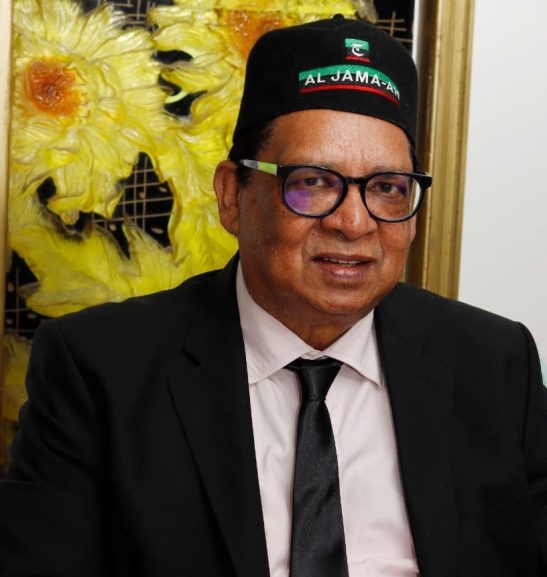Al Jama-ah in Parliament has submitted an Interim Registration of Muslim Marriages Private Members Bill to give effect to the Constitutional Court (Con Court) judgment on Muslim marriages.
This comes after Con Court declared that the common law definition of marriage is inconsistent with the Constitution and invalid as it excludes Muslim marriages.
Inconsistencies with Constitution
Both the Marriages and Divorce Acts were found to be inconsistent with the Constitution.
The judgment also strengthens the rights of women and children affected in Muslim marriages especially when the marriage is dissolved. Al Jama-ah welcomed the judgment saying an interim solution is needed.
The Court has given Parliament and Government two years to rectify the defect or develop legislation to give recognition to Muslim marriages.
Al Jama-ah leader Ganief Hendricks says the Appeals Court had previously given Government six years to amend the Divorce or Marriage Act so that the Nikah and the Talaq can be recognised. He adds that they have to wait till 2024 for the 7th or 8th Parliament to have the legislation in place.
Legal rights
“Now Al Jama-ah says we need an interim solution, that’s why we submitted a private members Bill just to register a Muslim marriage so that we can have legal consequences. So when the Imam marries you it must trigger a valid South African Marriage certificate which would give women and children legal consequences.” Hendricks explains.
Meanwhile, Muslim marriage Advocate, Fairouz Nagialegal, who claims to have been a victim of abuse, says the Con court judgment is a movement in the right direction, However she cautions that women in Muslim marriages may still have to go through the same dual processes, as now it would be just a matter of getting divorces immediately through the courts.
She elaborates, “So for me the question is, did the Court go far enough to recognise the Islamic system that is actually associated with Muslim marriages? I don’t think that they did. I think that there are bodies of law and there are rights and obligations that will not necessarily be enforceable because it is now boxed within a civil framework in terms of the Muslim marriages and in terms of the Divorce Act. Are there areas that will apply that will not be brought to the forum of the court? So, for Muslim women that might be difficult. That might even be complicated to understand even.”






